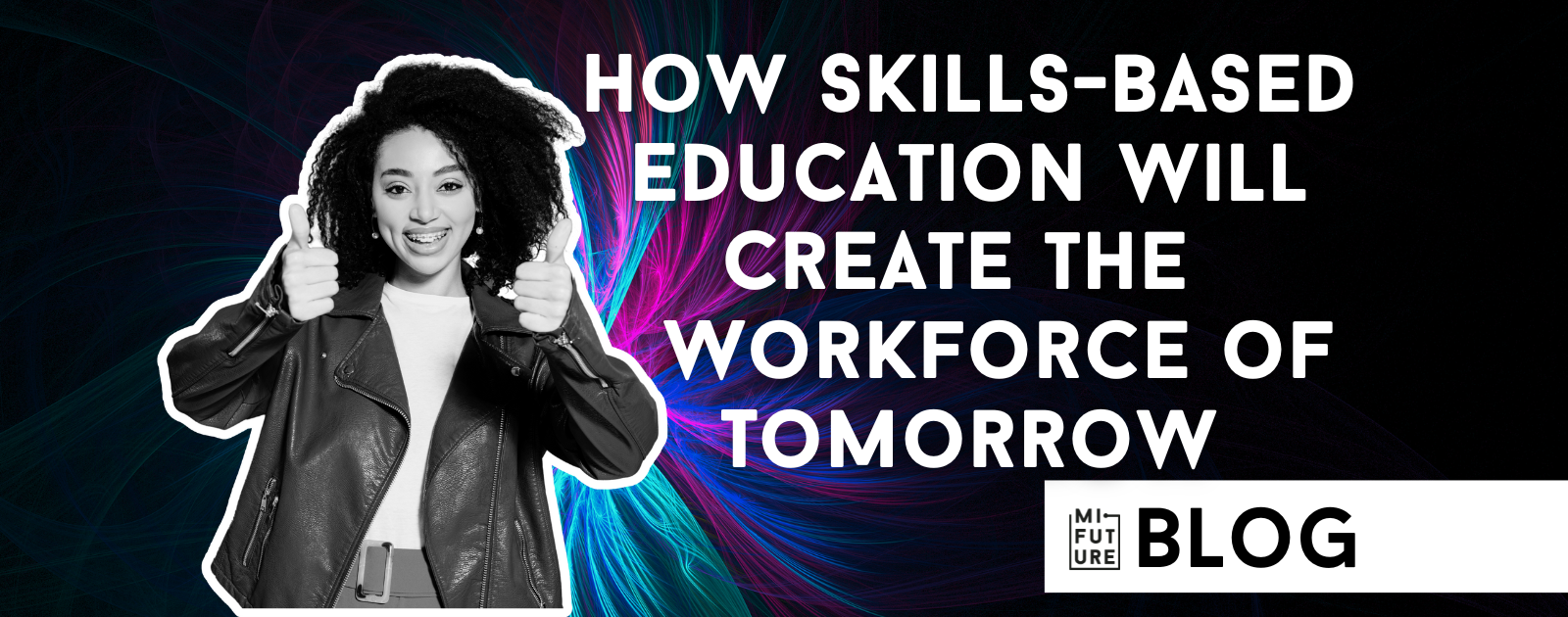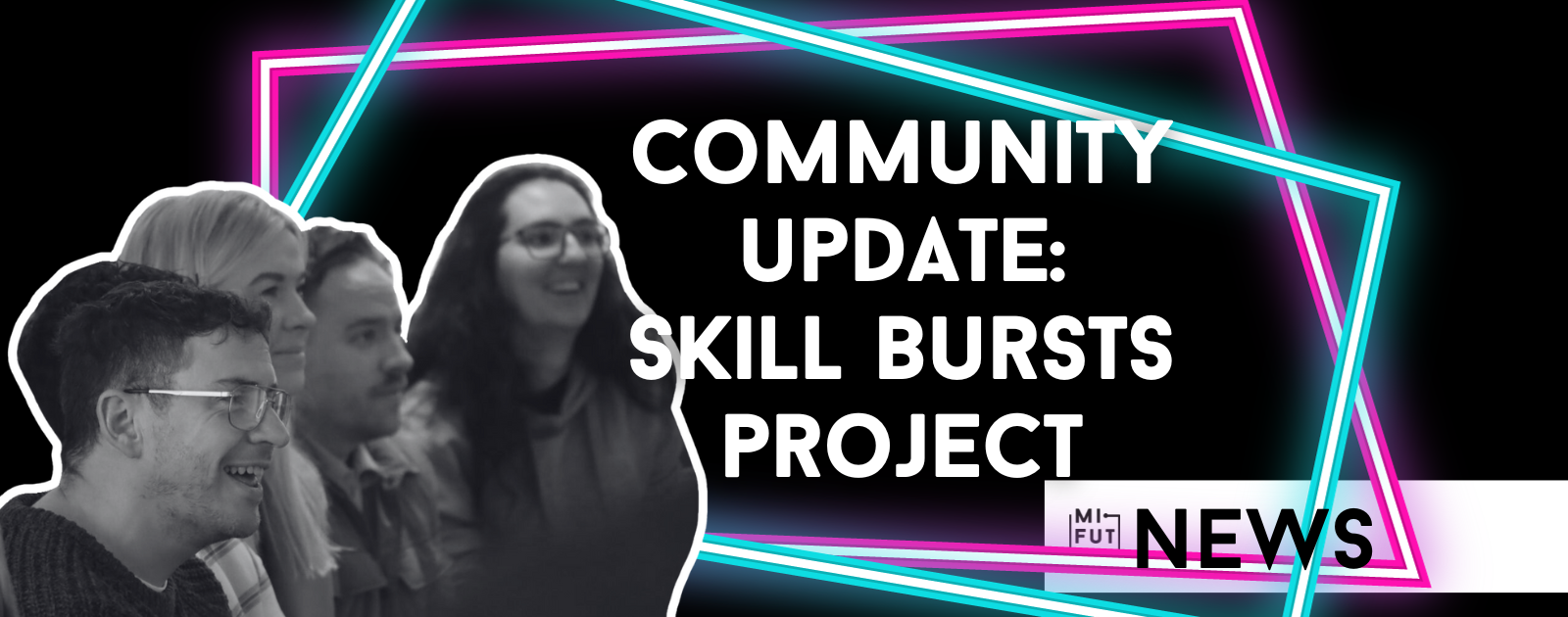
According to a report by Pearson, 85% of the jobs that will exist in 2030 have not been invented yet.
This means that we need to prepare Generation Z, for a future that is constantly evolving, and one way to do that is through skills-based education.
What is Skills-based Education?
It's an approach to learning that focuses on developing specific skills that are relevant to the job market. Unlike traditional education, which often emphasises theoretical knowledge, subject focussed learning, and memorisation, a skills-based education prioritises hands-on learning and practical experience.
This approach to learning will help Gen Z develop the skills they need for the future of work. and their ability to adapt to new challenges as that future of work continues to evolve, at pace, thanks to new technology, digital transformation, and the adoption on AI.
Why Skills-based Education?
We simply cannot afford for this generation to be sat in classrooms learning topics and subjects that are no longer relevant to the workplace.
The world isn't demanding the recall of a subject, say History or Geography (Now categorised with others as Humanities) google has taken care of that. It's demanding digital skills; advanced digital skills; communication; critical thinking; and problem solving. And with good reason too, it's these skill shortages that is crippling economic growth in this country.
We still need to learn our history, those who don't are doomed to repeat it, of course. But more as content for which the assessment of the other skills I mentioned above can be assessed, like telling of the formation of governments and societies through media, and being assessed on the choosing of platforms and the creativity of the project, or explaining the WW2 battles through designing an interactive game. Learning how to apply the skill in a practical sense, rather than retrieving information from memory in an exam room, is of most relevance for the future of work.
There is an abundance of research that claims skills and qualities needed in the world of work today, and for the future of work, are a variation of the below
💻 Digital Skills (Consumers) i.e. Digital comms, content, digital design, cloud storage, sending & receiving info, AI chat bots, basic online safety, gaming.
👩💻 Advanced Digital Skills (Creators and innovators) i.e. Program languages, software developers, data analysis & visualisation, hacking, AI, robotics, integrations etc..
💡 Innovation and creativity.
🤔 Problem solving and critical thinking.
🤝 Leadership and teamwork.
💬 Communication
👀Check out another of our blogs: The Future of Work: What Teachers and Parents Need to Know
Is Cymru Leading the Way?
The new Welsh Curriculum aims to develop learners who are “enterprising, creative contributors, ready to play a full part in life and work”. It is is the most significant change in education we've seen, and was shaped by teachers, parents, learners and industry.
Crucially the curriculum includes a Digital Competence Framework that sets out the skills and knowledge that learners need to thrive in an increasingly digital world. The framework covers four strands: citizenship, interacting and collaborating, producing and data and computational thinking, if delivered in a way that continually pushes skills development and lifelong learning, it can certainly have an impact on the future talent available for Welsh based organisations and the prospects of a Welsh generation.
New curriculum, but low aspirations?
But, some suggest that 'The curriculum does not provide enough guidance or support for teachers to develop their own digital competence and confidence, which may affect the quality and consistency of digital learning across schools.' These are valid concerns; we must be bold in our endeavour to develop generations of innovators and creators, but we run this risk of settling for a conveyor belt of digital consumers; which are two very different outcomes in a skills economy desperate for an increase supply of the former.
Time will tell, but my concern is we wait 6 years as the first leavers head toward the labour market and realise that the curriculum does not sufficiently challenge or inspire learners to create their own digital solutions or products, but rather success is defined by the use of existing tools and platforms.
Now here comes, Artificial Intelligence!
AI is transforming the future of work in ways many of us never perceived as little as a year ago. It brings huge potential to disrupt and create opportunities for all sectors, occupations, and possibly shift the skills demand into another paradigm all together.
As AI changes the demand and supply of skills in the labour market, school leavers may need to upskill at a faster pace than the education allows, needing to adapt to the new requirements and opportunities as they emerge.
Luckily, skill-based learning is available at a scale never seen before, there's an abundance of online microlearning, training programs, courses, or self-learning tutorials... YouTube continually comes out as a favourite for Gen Z here. Not to mention in-person apprenticeships and degree apprenticeships, bootcamps and academies, where the focus is on developing specific skills and prioritises hands-on learning and practical experience.
👀 Did you know according to Bookboon a 10-minute microlearning course has a completion rate of 83%, compared to 20% to 30% for standard learning courses. You can learn more about how Microlearning is Changing Education for Gen Z
Gem Hallett, miFuture Founder
miFuture.co.uk | @miFutureSkills
About Gemma Hallett: After a 10 year teaching and education management career spanning pre-16 and post-16, in both FE and HE. Gem left teaching to pursue a mission of building an EdTech brand that will help school leavers bridge the skills gap and make careers in the emerging and growth sectors more visible for Gen Z seeking alternatives to university.

.png)


